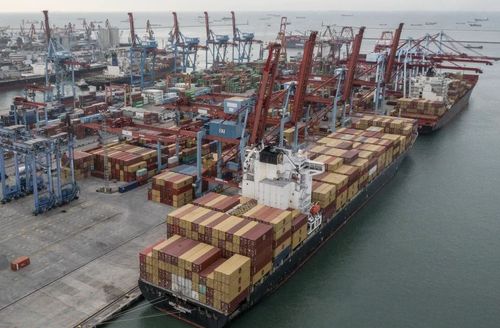As global trade tensions escalate, especially between economic superpowers, the Indonesia Business Council (IBC) has proposed a bold solution: strengthening business partnerships between Asia and Africa. According to IBC, deepening economic cooperation between the two regions could offer a powerful buffer against the uncertainties of a turbulent global trade environment.
Trade War Escalation Creates New Economic Pressures
Recent developments in the ongoing U.S.–China trade war, along with other rising protectionist policies worldwide, have created instability across supply chains and international trade markets. Tariff hikes, export bans, and political friction have caused business leaders and governments alike to search for more resilient trade strategies.
As a result, many countries in both Asia and Africa are rethinking their global dependencies and exploring South-South cooperation—a model that promotes economic collaboration among developing nations.
IBC: “Asia and Africa Can Build a New Trade Narrative”
The Indonesia Business Council has been vocal in advocating for Asia-Africa partnerships. According to IBC, these regions share complementary strengths that, if leveraged effectively, could lead to a more balanced and independent global trade structure.
“Asia offers technological innovation, capital, and manufacturing capabilities,” said an IBC spokesperson. “Africa, on the other hand, provides a wealth of natural resources, emerging markets, and a growing young population. Together, we can reshape global trade—not as passive participants, but as active players.”
Key Sectors for Collaboration
IBC highlights several industries where Asia-Africa collaboration could flourish:
- Infrastructure and construction, especially as African nations accelerate urban development.
- Agriculture and food security, where Asia can share technology and Africa can offer fertile land.
- Digital economy and fintech, with both regions seeing rapid mobile adoption and digital innovation.
- Renewable energy, including solar and hydropower, which is crucial for sustainable growth.
These sectors not only present economic opportunities but also promise long-term social and environmental benefits.
Opportunities and Challenges Ahead
Of course, such partnerships are not without challenges. Issues like regulatory differences, lack of connectivity, and political instability in some regions must be addressed. However, IBC insists that with coordinated policies, trade agreements, and cross-border investments, these obstacles can be overcome.
To that end, IBC is actively promoting regional forums, business summits, and bilateral agreements that focus on practical steps to deepen ties between Asian and African entrepreneurs.
Conclusion: A New Era of Intercontinental Collaboration
As the global trade war shows no signs of slowing down, IBC’s call for Asia-Africa business partnerships offers a realistic and optimistic alternative. By shifting focus from economic rivalry to cooperation, both continents have a chance to thrive—together.
In the face of global uncertainty, one message is clear: collaboration, not confrontation, is the key to future prosperity.













